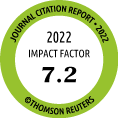Return to content in this issue
Microbiome and Allergy: New Insights and Perspectives
Zubeldia-Varela E1,2, Barker-Tejeda TC1,2, Obeso D1,2, Villaseñor A2, Barber D1, Pérez-Gordo M1
1Institute of Applied Molecular Medicine (IMMA), Department of Basic Medical Sciences, Facultad de Medicina, Universidad San Pablo-CEU, CEU Universities, Madrid, Spain
2Centre for Metabolomics and Bioanalysis (CEMBIO), Department of Chemistry and Biochemistry, Facultad de Farmacia, Universidad San Pablo-CEU, CEU Universities, Boadilla del Monte, Madrid, Spain
J Investig Allergol Clin Immunol 2022; Vol 32(5)
: 327-344
doi: 10.18176/jiaci.0852
The role of the microbiome in the molecular mechanisms underlying allergy has become highly relevant in recent years. Studies are increasingly suggesting that altered composition of the microbiota, or dysbiosis, may result in local and systemic alteration of the immune response to specific allergens. In this regard, a link has been established between lung microbiota and respiratory allergy, between skin microbiota and atopic dermatitis, and between gut microbiota and food allergy.
The composition of the human microbiota is dynamic and depends on host-associated factors such as diet, diseases, and lifestyle. Omics are the techniques of choice for the analysis and understanding of the microbiota. Microbiota analysis techniques have advanced considerably in recent decades, and the need for multiple approaches to explore and comprehend multifactorial diseases, including allergy, has increased.
Thus, more and more studies are proposing mechanisms for intervention in the microbiota.
In this review, we present the latest advances with respect to the human microbiota in the literature, focusing on the intestinal, cutaneous, and respiratory microbiota. We discuss the relationship between the microbiome and the immune system, with emphasis on allergic diseases.
Finally, we discuss the main technologies for the study of the microbiome and interventions targeting the microbiota for prevention of allergy.
Key words: Human microbiome, Gut microbiota, Food allergy, Cutaneous allergy, Respiratory allergy, Omics



